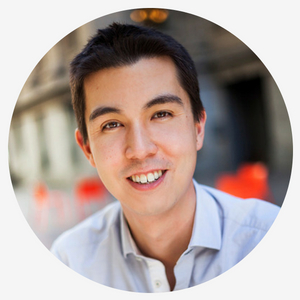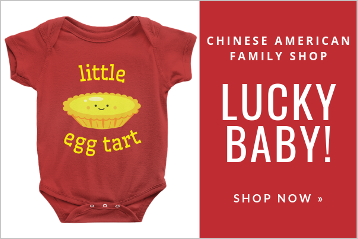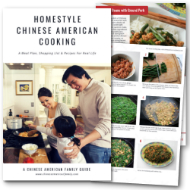This article is part of our collection of Family-Friendly Activities. Sign up for our newsletter to receive family-friendly activity, recipe and craft ideas throughout the year.
Welcome back from the summer and welcome to the new Chinese American Family weekly round up! Moving forward, I’ll be including more content from across the web covering Chinese American news, history, food, entertainment and opinions. Of course, you’ll also continue to receive posts from Chinese American Family as they fit within the year!
This week:
- Lulu Wang’s new movie The Farewell hits the big screen and beyond.
- A new book examines melancholy among Asian Americans.
- Looking back at St. Louis Chinatown.
Community Headlines

Is it police work or racial profiling? A crackdown has put Chinese scholars on edge. With three patents and more than 300 research papers to his name, Xiaoxing Xi was the respected chairman of Temple University’s physics department. That is until May 2015, when FBI agents burst into his home near Philadelphia and accused him of being a spy. L.A. Times
Voices

“People ask me in good faith why I should care if the Chinese face discrimination,” Frank H. Wu writes. “They point out I have spent my lifetime as a Chinese American insisting that I am a kid from Detroit, and that Chinese Chinese are different. The distinction eludes most people, other than Chinese Americans.” S.F. Chronicle
Going to China as a second-generation Chinese American is such a deeply personal and overwhelming experience that Sharon Zhang never thought she would see it on an American movie screen. Many scenes from The Farewell portrayed her experiences so accurately that they felt like they’d been lifted from her own life. Pacific Standard
“As an American-born Chinese person (ABC for short), I sometimes struggle with balancing my Chinese and American identities,” writes Beverly Deng, a college student at the University of Pennsylvania. “Here in Shanghai, an observant handful of locals can tell from the way I dress and present myself that I am a foreigner.” Penn Abroad
On Screen

The Farewell, a movie about a grandmother who isn’t told she has cancer, led the Chinese American writer Brian X. Chen to rethink his own family’s “good lie,” rooted in a cultural tradition that prizes harmony. Why not put everything out in the open? And why insist on creating an illusion that everything is O.K.? N.Y. Times
Character Media reports that PBS is releasing a five-part documentary series titled Asian Americans in time for Asian Pacific American Heritage Month in May 2020. The series will feature how Asian American culture has formed from Chinese immigration dating back to the 1850s. Resonate
In the mid-nineties, David Eng, a professor at Columbia, and Shinhee Han, a psychotherapist, observed a wave of depression afflicting the school’s Asian-American students. Their new book examines the contexts that help produce, or amplify, a community’s feelings of waywardness, alienation, and loss. The New Yorker
Food

Director Lulu Wang recently took a reporter on a San Gabriel Valley food crawl to eat some of the dishes from The Farewell. Some of the stops? Beijing Pie House, Duck House and Kang Kang Food Court to eat meat pies, roast duck and dumplings. L.A. Times
The world’s best-selling liquor is a drink many Americans have never heard of, despite reaching overall sales of $10.6 billion in 2018 (that’s billion with a B). It’s clear and has an aggressive, fragrant kick. It can be consumed straight and harsh or mixed into cocktails. Its name? Baijiu. Eat your heart out, whiskey. Thrillist
History

A last pot of won ton soup simmered at the Asia Cafe. Workers carried away the pans of bean sprouts growing in the dank basement. After the restaurant closed on August 1, 1965, there was nothing was left of St. Louis’ small Chinatown, known as Hop Alley. St. Louis Post-Dispatch
A Last Grain Of Rice
“There’s a power in being able to recognize our struggles as the result of paradoxes we live within rather than seeing them as purely private failings. It’s a step toward imagining lives that we might be the authors of, with endings that we write ourselves.” — Writer Hua Hsu





Joan
Thanks for compiling these links to read.
The first time we went to St. Louis, we assumed a city of that size would have a Chinatown. We didn’t plan to visit it, and while we were there, did a quick search to look for Chinatown. We didn’t find it, later learning that it had been torn down. We did find a street with a strip mall of Chinese businesses, but it was similar to those in cities that didn’t have a Chinatown in the past.
Wes Radez
Thanks for checking in, Joan. The history of Chinatowns in second-wave cities (i.e. not SF, LA, Boston or NYC) is pretty fascinating. Many were established in the years following the construction of the railroad, then fell victim to redevelopment over the years. ~Wes